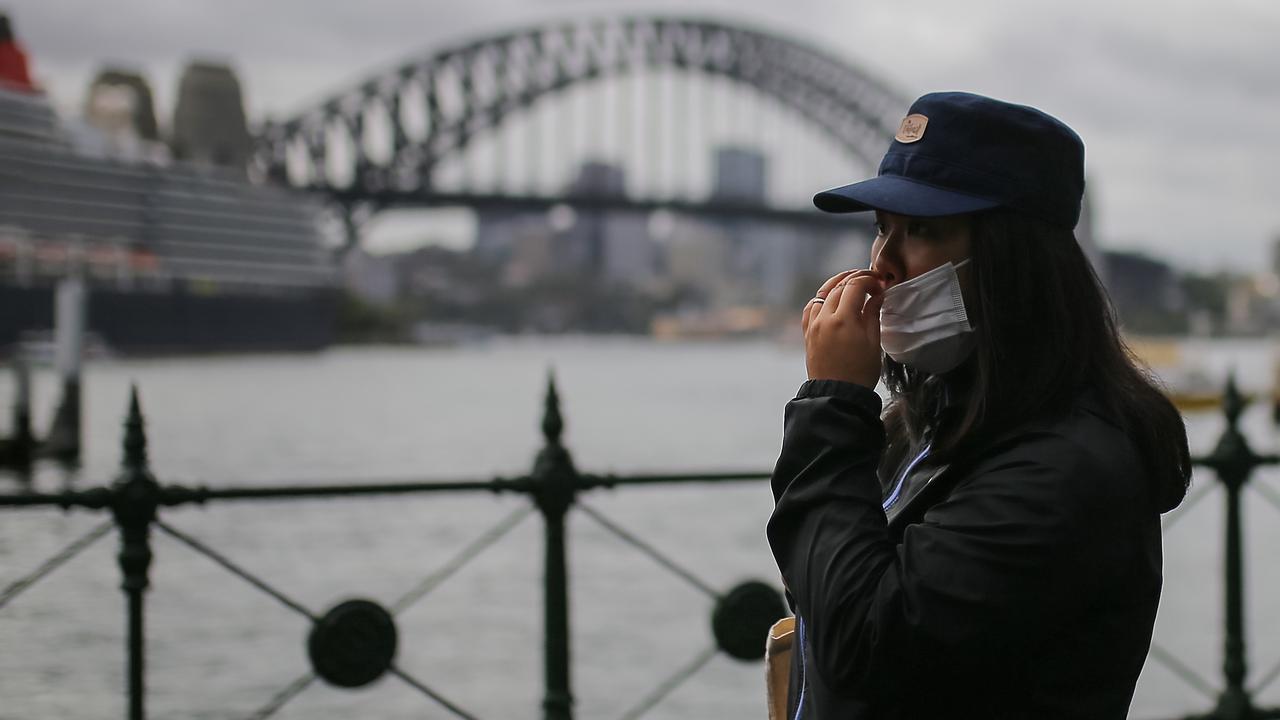Australia may have to consider stricter quarantine measures despite new travel ban
Australia’s travel ban begins tonight but one expert believes stricter quarantine measures are needed for Aussies coming home.

Australia’s borders will finally be closed tonight but some believe the Morrison Government may eventually have to consider even stricter controls such as forcing returned travellers to stay in hotels for 14 days.
Prime Minister Scott Morrison has been under pressure to close the borders to all countries for at least a week as the coronavirus outbreak continued.
Grattan Institute chief executive John Daley believes the Government should have acted sooner.
He argued last week for introducing significant social distancing and closing airports to foreign travellers.
“In retrospect that would have been a good idea given it’s happened anyway,” Mr Daley told news.com.au.
“Waiting a week makes a big difference when you’ve got an infection that’s growing.”
Federal Government figures show Australia’s coronavirus cases more than doubled in less than a week.
There were 709 cases as of 6.30am on Friday, the morning after the Government's travel ban announcement.
This was an increase of 414 cases since 7pm, Saturday, March 14, when there were 295 cases.
The number of cases thought to have been acquired overseas rose by 93 cases, according to data updated to Thursday 6.30am, from 166 to 259, an increase of 56 per cent.
While it is not known how many of these cases were linked to tourists, or from Australians returning home, Mr Daley said a substantial number of them would have infected other people.
Some tourists are reportedly taking a relaxed approach to “social distancing” and seem more preoccupied with enjoying their holidays than protecting themselves against the global pandemic.
Mr Daley said more stricter measures may have to be considered if Australia was serious about grappling with the pandemic.
“Even the arrangements at the moment, where only Australians can come back to voluntary isolation, is nothing like enough,” he said.
As of 9pm Friday, all non-citizens and non-residents will be banned from entering Australia.
Australians and their direct family members will still be allowed in but must self-quarantine for 14 days, regardless of which country they have travelled to.
RELATED: Australia’s coronavirus death toll rises to seven
RELATED: Follow updates and the latest news about coronavirus
Previously only overseas visitors who had travelled through China, Iran, Korea and Italy were unable to enter Australia.
Mr Daley said up until today well over half of those newly infected had recently got off a plane, and a majority of others had also been infected by those who had travelled.
“Self isolation is not working, which is not surprising. Quarantine should be real quarantine so that anyone who lands in Australia goes and lives in a hotel – we have a lot of vacant hotels at the moment – and are genuinely supervised so they don’t come out (for two weeks),” Mr Daley said.
“If you are serious about quarantine that’s what it looks like.”
According to reports, China is already subjecting travellers entering the country to this type of strict quarantine.
“If you look into the history of quarantine, that’s how they did it. You don’t just assume people are going to go home and do the right thing for a full two weeks,” Mr Daley said.
GOVERNMENT DEFENDS ITS RESPONSE
Home Affairs Minister Peter Dutton, who himself was confirmed to have coronavirus, has defended the Government’s actions, pointing out Australia’s ban was coming earlier in the progression of the disease than other countries.
Mr Dutton said the ban was being put in place while cases were still in their “hundreds”, while other countries had only acted when cases were in “high multiple thousands”.
“We have to compare country by country and what we are doing is taking these steps at a far earlier time in the disease progression. And that is what is helping in Australia,” Mr Dutton told Today this morning.
“That’s what’s allowed us to delay significantly the onset.”
Australia first banned travellers from China, with restrictions coming into force on February 1. It later introduced restrictions on Iran and Korea but waited until March 11 to ban arrivals from Italy before banning all visitors from 9pm on March 20.
Mr Dutton said the Government was following the medical advice and had asked its medical advisers to be fearless in their opinions.
“In my view, what we have done is actually taken these decisions on mass gatherings and borders earlier than we might have … because we wanted to keep being on the front foot.”
But Mr Daley said the sensible thing was not base your response on how many cases existed but to consider the point in time.
“New Zealand acted when it only had 20-odd cases,” he said.

‘WE USED TO DO THIS’
Mr Daley said the history of epidemics showed that those who enforced strict quarantines early fared better.
“If you have spent any time reading about the history of epidemics, one of the things that are very effective is closing your border to wherever it’s coming from,” he said.
“At the very least it slows it down and if you are quick and do it properly, it may stave off the disease as well.
“In a world in which borders going to close anyway, you might as well close early.”
It was also worth remembering, Mr Daley said, that quarantine centres had existed at places like Point Nepean in Victoria, during his father’s lifetime.
“People were asked to disembark at Point Nepean and put into quarantine if they were coming from a place with a disease they didn’t like.
“It’s within our living memory that we used to do this … that’s how it used to work.”
Continue the conversation @charischang2 | charis.chang@news.com.au




